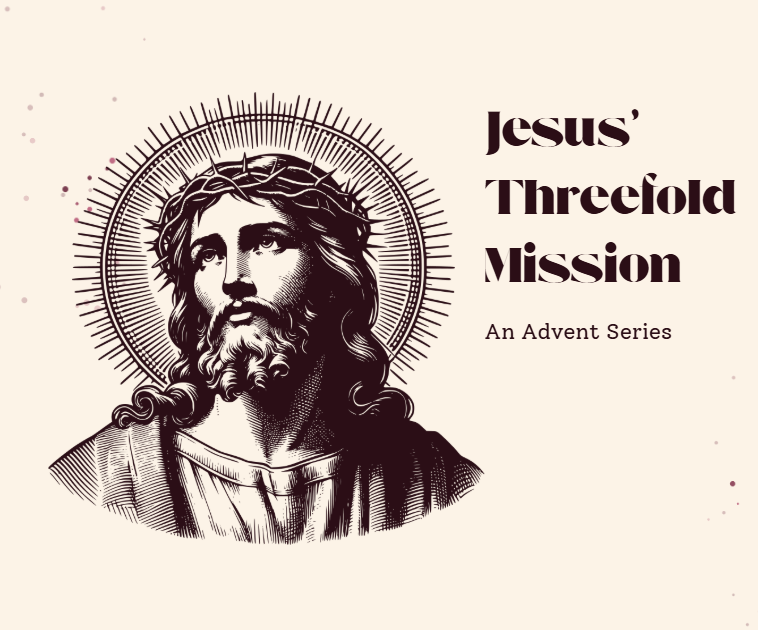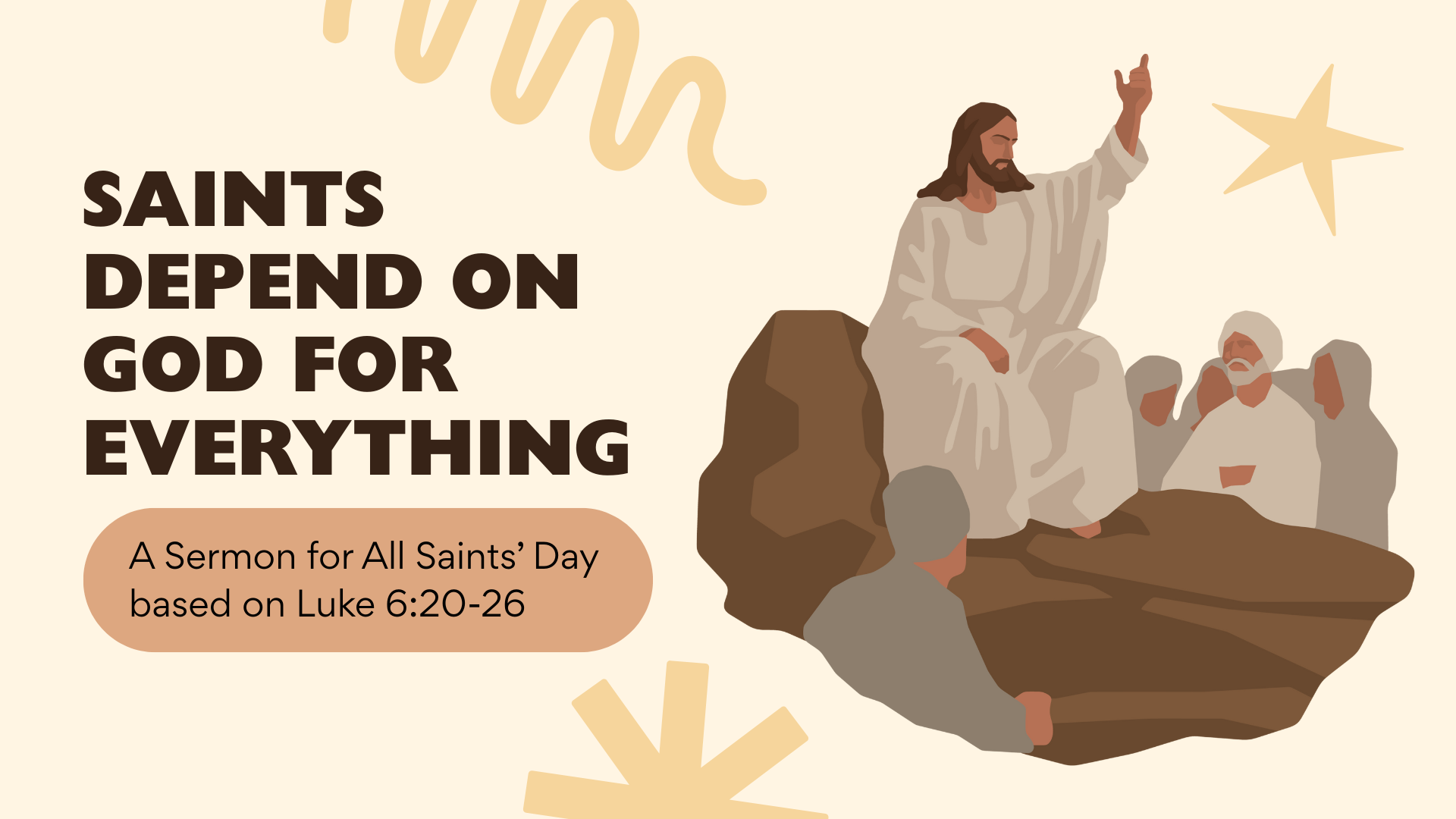By Pastor Mike
•
December 13, 2025
It doesn’t matter if you’re contesting a speeding ticket, if you’ve been framed for murder – If you need a lawyer, you want a good one. But how can you tell if the lawyer you’ve hired might not actually be that great? Over time, maybe you notice that they aren’t very honest. They make you question if they actually care about the truth, or if they just want to win the case. Or, you notice that they’re not very competent. They’re always late to appointments with you. When they show up, they haven’t showered, and there’s alcohol on their breath. When you find out that your lawyer is neither ethical nor competent, you have to terminate their services. It doesn’t matter what the type of case is, you don’t want a bad lawyer representing you! Last week, we talked about the need for Prophets – stand-ins, whose job it was to represent God and speak his Word to the people. This was necessary, because no one can hear the holy voice of God and survive (Exodus 20:19). But who will plead our case before God? Who will be our stand-in before the Almighty Judge? The good news is: there are plenty of options; plenty of lawyers willing to stand in for you. That is, there are plenty of methods people suggest on the best way to appear before God. Be a good person, mind your own business, do no harm to others, and you should be good. Come before God with receipts to show that we are making progress – like you’re on probation that has to show you’re making positive strides by showing up to counseling appointments, taking care of our families, volunteering, etc. Otherwise, God will be mad with us. Whether we are getting this message from the outside world, or have settled upon it for ourselves, this is a lot like a lawyer who barely passed law school – they have the general idea right, but fall far short of what the law actually says. And if we follow them, we’ll realize their incompetence when the jail cell door slams shut. We don’t understand the charges – we have fallen short of the glory of God. We incompetent lawyers neither understand the law or the Judge. It’s not just general goodness that will get the charges off, it’s total holiness. Anything else will get us laughed out of court, right to our own condemnation. This was the purpose of the Old Testament priesthood. Men from the Israelite Tribe of Levi were chosen to represent the people before God – not in court, but in worship. Through sacrifice and prayer, the priests of the Tabernacle and Temple presented the people’s case to God, begging him to relent on his charges. Through the priestly system, God was teaching the human race the true letter of the law: total holiness, or condemnation. Total perfection, or blood would have to be shed. There are no other options. And a lawyer that presents a different way to win God over is either intentionally lying, or just incompetent. So, Jesus had to be born. Jesus’ birth is like our first meeting with a new lawyer, one unlike any we’ve seen. As we watch Jesus walk and talk, we’re getting to know who this guy who will represent us is. He’s talking about the Judge like he knows him. Have they worked together before? Has this lawyer presented other cases before this judge? It seems deeper than that. When you hear this lawyer talk, you can tell that he is on very good terms with this judge. You flat out ask, “Do you two know each other?” This lawyer says, “Know him? I’m his son!” Now, that could fill you with dread. Is the lawyer going to collaborate with his dad to send you right to jail? Is this system rigged against you? Quite the contrary. This Lawyer (this Priest) and his Father, the Judge (God) are working together to get the charges dropped. There is only one way that you will be allowed to go free, and that’s exactly what they’re going to do for you. But they’re going to do it in a way that doesn’t violate the truth. This is not shady business, after all. They will work together to uphold justice, but bring you mercy. Paul explains how Jesus did this in Galatians (4:4-5): Jesus was born under the Law to redeem those under the law. Since God requires righteousness, the charges would not be satisfied unless righteousness were offered. So, Jesus became our righteousness, representing us as if we had truly obeyed the Law (which Paul explains in 2 Corinthians 5:20-21). He had to be born a complete human being, full of weakness and humility, to embrace and live out the law of righteousness that God requires of all of us. This was a choice Jesus made. As God himself, Jesus had all of the holiness and none of the sin. He had nothing to gain for himself by becoming one of us. But if we were going to escape the condemnation we deserved for not being the righteous beings we were meant to be, that righteous obedience had to come from somewhere! So, as a human being, Jesus rejected temptations of lust. He served his neighbor. He loved his human mother and father. He cherished time in prayer and in his Father’s house of worship. He honored and respected his human leaders. He gave his body and soul rest. He was content with what he had, even when it was very little. He did all this as a human being, storing up the perfect righteousness to deliver on our behalf before the judge. Then, he died. He chose death. Just as Jesus didn’t need to come, be born, and live under the Law, he most certainly did not need to die as if he were a guilty sinner. Just as Jesus chose a human life to provide the righteousness you lack, he chose a brutal death and the condemnation of hell to take away what you deserved. The Judge and Lawyer are indeed working together – God the Father and God the Son are indeed in cahoots – not against you, but for you. Throughout eternity, the three persons in the Trinity devised this plan to save you from your own unrighteousness. Other theories of how you can be saved – other lawyers’ methods of representing you – fail, where God has succeeded. Some suggest that God will just forget about your sin because he’s merciful and doesn’t care anyway. But this falls far short of the holy justice of God who hates sin and cannot abide it. God can’t violate his own character. He remains just. In Jesus and on his cross, God’s justice is satisfied, because the righteous requirement of the Law is met, and the wrath against sin is poured out on Jesus instead of us. Some suggest that you really can do what God’s law requires, and you can represent yourself. Not only is that impossible because we are too sinful (it minimizes God’s justice!) but it discredits God’s mercy. Jesus has dispensed God’s mercy to you completely and fully by his life, death, and resurrection. You can’t count on your own obedience to get for you what Jesus has already won and given to you freely! So, take it from Jesus: he is the only one who can properly represent us in God’s courtroom, as both the one who offers his righteousness for ours, and his atonement for our sins. The priests of the Old Testament were effective at teaching us how badly we need representation before God. They taught us that only by sacrifice can sin bet atoned for. But the sacrifices themselves never effectively atoned for any sins (Hebrews 9:9). Nor were the priests effective lawyers in the courtroom of God. They were sinful themselves! They couldn’t truly stand in for the worshippers they represented, because they had their own sins to answer for. And each priest passed away. Jesus comes along with no sins of his own, only with righteousness, and the sacrifice he offers for you is his own precious blood. Jesus is our true representative. He responds to every demand of the Law, “I did it for him / her. I have made restitution for them myself.” He says to the condemnation sin deserves, “I will serve it. I take it upon myself.” And because he came back to life, is resurrected and ascended, his redemption hasn’t gone away. It never will. The blood he shed continues to speak on your behalf. As your risen and ascended Lord, Jesus continues to represent you in God’s court – speaking of the righteousness he has given to you as his gift through faith. You will never have to worry about how God feels about you again – it’s Jesus who has redeemed you, and he lives. The question is, who else would you want representing your case before God? This is God’s own Son. Who else would you want pleading your case than the one who intimately knows what it’s like to be human? Who else would you want approaching the Father than the one who intimately knows the Law and its requirements? Who else would you want in the front of that courtroom, as your great High Priest, than the one who chose to be born, chose to be subjected to the Law, chose to die so that he could rise – all for you?








